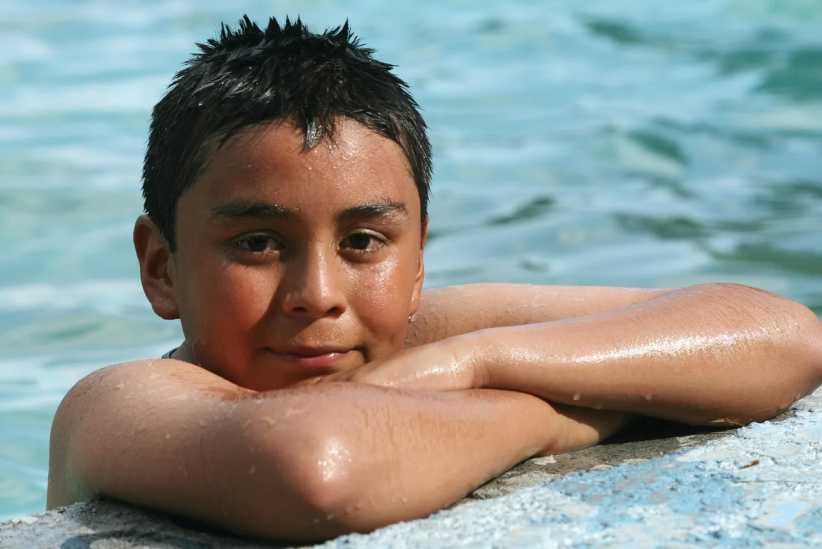One of the advantages to raising a family in New York City and the rest of New York is the sheer volume of things to do with your kids and places to go. That’s true for camp, too: There are hundreds of nearby day camps and sleepaway camps in the New York area available for your child to attend. STEM camps, dance camps, theater camps, art camps, specialty camps; you name it, New York has got it. While it's a perk, this can make determining the just-right spot for your child to spend the summer a bit overwhelming. How can you narrow your list, and choose the perfect summer camp for your child (and you)?
Internet reviews and browsing camp websites can help, but so too can talking to your child, considering the logistics involved, and touring the actual destinations. Here’s advice from camp directors across the New York metro area on how to create the perfect summer for your kid:
Know What You—and Your Child—Want
The first step: Consult with your child. After all, this is their summer! “The child’s opinion has to be respected,” says Terence Ryan, director at Hofstra Summer Camps in Uniondale.
Begin your conversation with a simple question: “[Ask your child] to imagine what a great summer camp would look like for them,” recommends Bobbie Finkelstein, director of after-school and day camp at Congregation Beth Elohim in Brooklyn.
Think about your child’s preferences—does he enjoy time indoors or outdoors, is he sedentary or active, and does he like large or small groups, says Cheryl Anstett, director and owner of Ann & Andy Child Care Center in Elmsford.
And, consider what you want your child to gain from the summer, says Lauren Wexler, director of camp programs at the 92nd Street Y in Manhattan. Whether it’s becoming a better swimmer, making neighborhood friends, or increasing STEM skills, think about how the camp can help support that goal. And, think about the other characteristics, such as size, facilities, mix of activities, and so on, when initially reviewing options.
Look into the Camp's Accreditation and Safety
Safety is one of the first considerations for parents to consider, says Howard Seidman, camp director at Hillcrest Jewish Day Camp in Queens.
Todd Rothman, owner and director of Deerkill Day Camp in Suffern, recommends confirming that prospective camps are accredited by the American Camp Association. “It’s a seal of approval, and not always easily attainable,” he says. With this accreditation comes an assurance that the camp meets hundreds of sensible and important health and safety standards. If you opt to only have your child attend an ACA-accredited camp, you’ll significantly reduce your list of options.
“[With ACA accreditation] you can be assured that your child will going to one of the top-notch camps in the country,” says Susie Lupert, executive director of the American Camp Association, New York and New Jersey.
Keep Your Budget in Mind
Here’s another quick way to eliminate a wide swath of camps from the list: Figure out what you can afford, and then remove the camps with rates above that amount. “Budget is a big consideration,” Rothman says. Find out the total price, he recommends, as well as what’s included: transportation, meals, etc. “A lot of those little pieces can add up so when you’re looking at your budget, you want to look at the total all-in costs,” he says.
And Don't Forget About Day-to-Day Logistics
For parents—especially working moms and dads—the logistics of camp can throw a wrench into routine. Think about the location of pick-up and drop-off, and how it'll fit into your day-to-day schedule, Wexler recommends.
And, ask about whether the camp has flexibility if you want to take a family trip or go on a vacation for a week of the summer, Rothman says. Some camps will let you cancel a few days or a week, Wexler notes, while others do not have that flexibility.
Do Your Research
You might be surprised about how much information you can gain from the camp’s website, from the logistical details to the overall vibe of the camp. “We always tell parents look at your values and try to discern whether the camp reflects those values—you can tell a lot from websites,” Rothman says.
Spend some time browsing through websites—and involve your child, too. Same goes for when you visit camp fairs, Wexler says. Let your child ask questions and get a sense for the camp from the booths, brochures, and websites. Some things to pay attention to as you browse through websites and stop by booths at the camp fair are:
- Interactions with the staff: If you're at the fair, pay attention to how you feel during conversations with the camp representatives. “The crux of what makes a camp great is the staff,” Seidman says. “The staff makes your camp experience.”
- Facilities and activities: Is there a good mix of activities? Joe Siegel, executive camp director at Sportime on Long Island, recommends asking what a typical day’s like. Ideally, he says, you’ll want a variety of active time (swimming, sports, etc.) along with some downtime to balance their day. Again, keep in mind your child’s personality. If your kid is an introvert, for instance, seek out a camp that’ll fit with that trait.
- Counselor-to-camper ratio: This is another big factor to keep in mind, Siegel says, especially if the camp is instructional. There’s a big difference between a 30-to-1 camper-to-counselor ratio and an 8-to-1 camper-to-counselor ratio in terms of attention.
Call or Visit the Camps on Your Shortlist
Most directors recommend visiting your two to three finalist camps. While the camp’s website is a nice intro, there’s no substitute for looking at it with your own eyes, Ryan says, especially since you’re investing a lot of money, and a significant amount of your child’s time, in the experience.
If you do a tour, make sure to bring your child along, Seidman says. “Your child is going to be spending time here, not you,” he notes. During your tour, you’ll want to see if the camp seems clean and well maintained, and if the facilities look modern, Anstett says.
Calling the camp director is your next best option if an in-person visit isn't feasible. “Ask to speak to the person in charge—any really good camp director will be thrilled to take that phone call and talk to a parent,” Lupert says. If you don’t feel comfortable talking to the director or feel like they’re not giving you sufficient time on the phone, that’s a bad sign.
During conversations (or visits) try to dig into factors that may not be mentioned on the website. For instance, you can ask about how much attention the camp gives to developmental levels when planning activities, Finkelstein says. You can also ask about how the camp encourages friendship-building, Finkelstein says (and, how the camp responds to bullying or other bad behavior).
One more tip for calls and visits: Try to get a sense if the camp can grow with your child. Ask about the camp’s retention rate, and what’s available for kids a few years ahead of your child’s age. “You don’t want to be taking tours on an annual basis,” Rothman notes—your goal is to choose a camp your child can enjoy this summer, and for many summers to come.
Ultimately, Anstett says, “if it feels right go with your gut.”






















